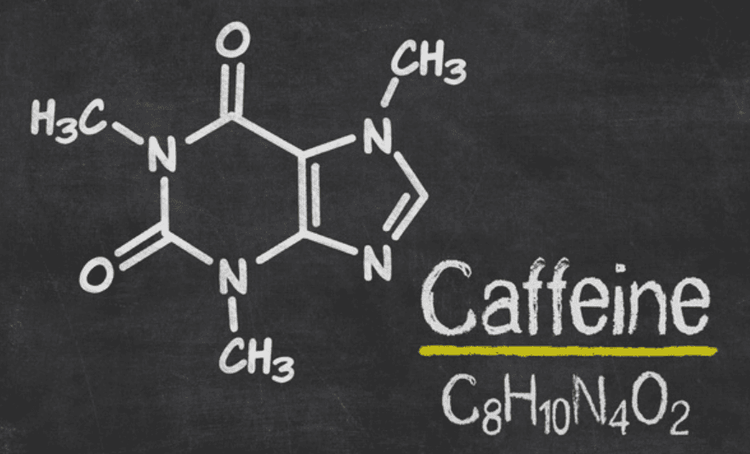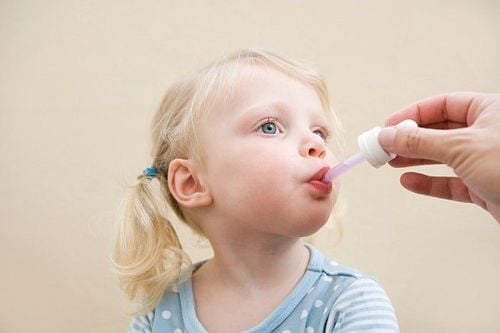This is an automatically translated article.
Although kombucha tea originated in China and appeared thousands of years ago, it has only recently begun to gain attention from the public due to its potential health benefits. However, the safety of drinking kombucha during pregnancy and breastfeeding is still a matter of controversy.
1. What is Kombucha Tea?
Kombucha tea is a fermented beverage, usually made from black or green tea. The process of making kombucha can vary from recipe to recipe. However, it usually involves a double fermentation process (fermentation by bacteria and yeast). In general, SCOBY - Symbiotic Colony of Bacteria and Yeast (a colony produced by a symbiosis of bacteria and yeast) is added to sweet tea and fermented at room temperature for a period of several weeks.Kombucha is then bottled and fermented for another 1 to 2 weeks to convert the carbonation, from which Kombucha tea will have a slightly sweet, slightly sour and very refreshing taste. After that, Kombucha tea can be used and they are usually kept cold to slow down the fermentation and carbonation process to preserve the tea's flavor longer.
You can find kombucha in grocery stores, but some people choose to make their own kombucha tea at home, which requires careful preparation and monitoring.
Currently, Kombucha tea has grown in sales very quickly due to the health benefits that this tea brings. This tea helps provide a healthy source of probiotics, providing your digestive system with healthy bacteria.
Probiotics have been linked to a variety of health benefits, including improved digestive health, weight loss, and may even help reduce systemic inflammation.
2. Concerns about drinking Kombucha while pregnant or breastfeeding

Trà kombucha
Although kombucha offers many health benefits, there are a few things to keep in mind before using it during pregnancy or breastfeeding.
2.1. Kombucha tea is an alcoholic beverage. The fermentation process of kombucha tea can convert some carbohydrates into alcohol. However, these carbs are very small, so the amount of alcohol produced is usually only in the form of traces.
Kombucha is marketed as a non-alcoholic beverage, but in fact they still contain a very small amount of alcohol and normally the alcohol content does not exceed 0.5% as prescribed by the Alcohol Tax and Trade Bureau and Tobacco (Alcohol and Tobacco Tax and Trade Bureau (TTB) USA.
An alcohol content of less than 0.5% is not a big deal, and it is comparable to most “non-alcoholic beers” on the market. However, health associations and organizations all recommend completely limiting alcohol consumption during all three trimesters of pregnancy. CDC – Centers for Disease Control also recommends that all types of alcohol contain alcohol that can be equally harmful.
Plus, it's important to understand that home-brewed kombucha generally tends to have a higher alcohol content, with some home brewers recording alcohol levels in kombucha tea up to 3%.
Alcohol can be excreted in breast milk, so breastfed babies can be affected by this amount of alcohol while breastfeeding. In general, it takes 1 hour 2 hours for your body to metabolize one serving of alcohol (equivalent to 350ml of beer, 150ml of wine or 40ml of spirits).
Although less alcohol is found in kombucha than in typical alcoholic beverages, it should still be considered, as infants metabolize alcohol at a much slower rate than adults.
The impact of alcohol consumption during pregnancy or while breastfeeding although only in small amounts has yet to be determined. However, with uncertain and unclear evidence, there are always potential risks. Therefore, the use of Kombucha tea during pregnancy and lactation can adversely affect the health of the baby.

Trà Kombucha có chứa cồn gây ảnh hưởng không tốt đến sức khỏe của trẻ.
2.2. Kombucha tea is an unpasteurized beverage Pasteurization is a method of using heat in preparing beverages and foods for the purpose of killing harmful bacteria, such as listeria and salmonella.
When kombucha is in its purest form, the tea is unpasteurized. Food and Drug Administration - FDA recommends avoiding unpasteurized products during pregnancy, including milk, soft cheeses, and whole juices, because these products can contain harmful bacteria.
Exposure to harmful pathogens found in everyday foods, such as listeria, can harm a pregnant woman and her unborn baby, including an increased risk of miscarriage and stillbirth.
2.3. Kombucha tea can be contaminated with harmful bacteria Contamination is higher for home-brewed kombucha tea products than for commercially prepared beverages. However, all Kombucha teas carry the risk of potentially harmful pathogens.
Kombucha tea is a fermented product, so the right environment for bacteria and yeast to grow and ferment the beverage, producing beneficial and friendly probiotics in kombucha is also an ideal environment for the growth of harmful bacteria. This is why it is so important to ferment kombucha tea under hygienic conditions and properly handle it.
2.4. Kombucha tea is a caffeinated product

Caffeine có thể đi trực tiếp qua nhau thai và xâm nhập vào máu của thai nhi
The amount of caffeine found in kombucha varies considerably between products but this is an issue to be aware of, especially during pregnancy, where it takes a woman's body longer to metabolize caffeine. compared to normal people. In addition, for nursing mothers, a small percentage of caffeine may be excreted in breast milk.
If you are breastfeeding and consume large amounts of caffeine, this may cause your baby to become irritable due to the effects of caffeine and become irritable, lose sleep, increase alertness. Therefore, pregnant and lactating women are advised to limit caffeine consumption to no more than 200 mg per day.
Most research shows that moderate caffeine use during pregnancy is safe and has no harmful effects on the health of the unborn baby. However, some studies suggest that increased caffeine consumption may be associated with adverse effects, such as miscarriage, low birth weight, and an increased risk of preterm birth.
In a nutshell, Kombucha tea is a fermented beverage rich in probiotics that offers a number of health benefits. However, when it comes to consuming kombucha tea while pregnant or breastfeeding, there are a number of risks that need to be weighed. Although there are no large-scale studies on the effects of drinking kombucha during pregnancy, it is best to avoid kombucha during pregnancy and breast-feeding because of kombucha tea's unsafe pregnancy properties such as a certain alcohol content, caffeine content and lack of pasteurization. Finally, the microbial structure of this fermented tea is quite complex and further research is needed to ensure its benefits and safety.
If you want to add probiotics to your diet while pregnant or breastfeeding, try yogurt with active probiotics, yogurt made with pasteurized milk or whole foods. yeast like sauerkraut.
Please dial HOTLINE for more information or register for an appointment HERE. Download MyVinmec app to make appointments faster and to manage your bookings easily.
Reference source: healthline.com












